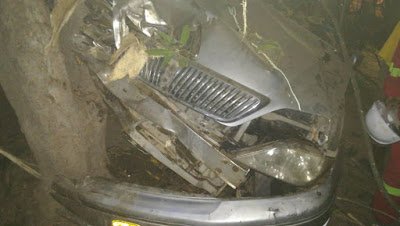Clayton Shereni
Since government introduced the
Covid-19 national lockdown in March this year which banned inter-city and
inter-district travels, the number of unlicenced driver seems to have increased
as police now tend to ask for from motorist letters confirming that they work
for essential goods and service providers and forget to see driver’s licences.
Before the lockdown, road traffic
accidents were a daily killer of many people, and this was supposed to be
lessened by the lockdown as road traffic volumes dwindled significantly.
New challenges, however, began to
emerge as police got more involved in confirming travel eligibility than in
enforcing road traffic law.
This is perhaps an understandable
distraction on the party of law enforcement agents as their principal concern
changed from road traffic law to lockdown regulations which were made to fight
the spread of coronavirus.
Some police officers seem to
operate with the basic assumption that a person without a driver’s license
would never attempt to drive past those severe roadblocks, but information
gathered by TellZim News suggest that they are wrong.
With mask and an exemption
travelling letter, an unlicenced driver could easily pass through a roadblock
during the tightest phase of the lockdown.
The lockdown made unlicenced
drivers to focus only on getting travel clearance to enable them to do their
hustles as road traffic law now seemed to play second fiddle to lockdown
regulations.
Some pirate passenger vehicles
still plied routes despite the lockdown, leading to a number of serious
accidents blamed mostly on human error.
Repeated efforts by the Traffic
Safety Council of Zimbabwe (TSCZ), which works to improve road safety through the
mobilisation of the collective will of all citizens, do not always yield
required results as people seem to be not very much worried by road traffic
safety issues.
TSCZ spokesperson, Tatenda
Chinoda called on motorists to adhere to the rules of the road and lessen the
burden on law enforcement agencies who are busy enforcing lockdown
regulations.
“When you are in a crisis, much
of your focus shifts towards the crisis but that should not give motorists a
chance to flout other laws, rules or regulations. From a road safety
perspective, law enforcement agents’ exercise discretion and try to bring
convenience onto the roads since our road users are well aware of what the law
requires,” said Chinoda.
Road traffic accidents are the 10th
leading cause of mortality among the 1.35 million deaths recorded worldwide
with most of the victims being pedestrians and cyclists. Data has also shown
that lower volumes of traffic on the roads due to the lockdowns does not
necessarily translate to fewer cases of accidents as motorists tend to be even
more reckless when the roads are emptier.
During the night of August 28,
2020, Tendai Gondo an unlicensed Toyota Vista driver ran over seven pedestrians
claiming three lives in the high density suburb of Pangolin in Masvingo while
driving allegedly under the influence of alcohol.
Gondo had spent the whole day
driving the vehicle and eyewitnesses saw him driving around freely.
Masvingo police assistant spokesperson,
Ass Inspector Kudakwashe Dhewa said it was not necessarily true that police
were getting pre-occupied with enforcing the lockdown at the expense of road
traffic law.
He said many motorists were
avoiding roadblocks but he could not completely rule out observations that
police were no longer as much worried about driver’s licence as they did before
the lockdown.
“We were asking for licenses at
roadblocks but some of the motorists would use undesignated roads to avoid
police checkpoints,” said Dhewa.
A female motorist who spoke to
TellZim News said only her employers exemption letter would see her through a
roadblock into town.
“I would just show them a letter
with a logo, written and signed by my boss and make sure that I don’t carry any
passenger. They then just waved me through and sometimes, my uniform alone was
enough as some of the officers at the roadblock had become familiar with me,”
said the driver.
Within this whole debate also
emerges the issue of corruption on the apart of both law enforcement citizens
and equally immoral motorists.
In May 2020, a Masvingo police officer
appeared before Magistrate Mbonisi Ndlovu facing charges of criminal abuse of
office after he allegedly received a US$50 bribe from a motorist who was taking
his sick mother to hospital on April 21, 2020.
Tatenda Mtigwa who was manning a
roadblock with other members of his unit and military police along
Masvingo-Mashava road just after SIMBI plant, demanded an exemption letter from
Rangarirai Chikozho which he did not have.
Chikozho, who was driving a
Nissan Caravan, was ordered to turn back but he pleaded for passage which he
was offered by Mtigwa upon payment of US$50 bribe which he did in US$5 notes.
The matter came to light when other
senior law enforcement agents who were passing-by took action after noticing
that some bribery was occurring.
As the lockdown continues to
ease, it is important for all stakeholders to acknowledge that both the
lockdown regulations and road traffic law need equal attention. It would be
meaningless to save citizens from the Covid-19 causative agent coronavirus only
to let them perish in road traffic accidents.







